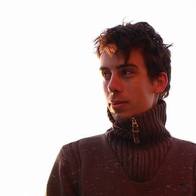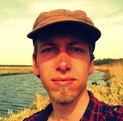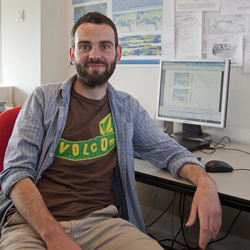
Yesterday Utrecht Geo Graduates (UGG) organized the fourth annual Geosiences PhD day. The day, which is actually an afternoon, consisted of a plenary session, workshops and drinks. The topic of the day was "The PhD of 2025".
 Blog entry by Koen Siteur Yesterday Utrecht Geo Graduates (UGG) organized the fourth annual Geosiences PhD day. The day, which is actually an afternoon, consisted of a plenary session, workshops and drinks. The topic of the day was "The PhD of 2025".
0 Comments
 Blog entry by Floris Keizer - Junior Lecturer / Researcher I think we should honor the ecosystem services of natural wetland systems more. One of the ecosystem services we want to get a grip on is the natural nutrient retention function of floodplains. Mostly, nutrients in flood water are only measured as dissolved fraction. However, a substantial part of the nutrients is transported as particulate nutrients (organic matter) or bound to suspended sediment and this is what we study. We use the natural Biebrza river valley (Poland) with annual snow-melt spring flood as study area. It has a fairly undisturbed character and there is a wealth of data available on surface and groundwater hydrology and vegetation. April 2014: A promising reconnaissance survey Last year during the spring flood we tested our new equipment: the Phillips sampler. Water flows through a small inlet tube and into a larger PVC cylinder. There, flow velocity drops and suspended sediment (with nutrients attached) is deposited. At the end, water exits the samplers through another small tube. The sediment can be collected and show cumulative suspended particulate nutrient transport over the period of submergence. To actually know how much is deposited on the floodplain, we installed artificial grass mats. Both techniques showed promising results so last October we up-scaled our experiment to more locations and higher spatial and temporal resolution.  Blog entry by Brian Dermody - Postdoc Most of the work we do as scientists remains within the scientific community but now and again certain topics, for whatever reason, seem to capture the public’s attention. This is happening more and more with platforms like IFLS, Radiolab and ‘celebrity’ scientists such as Neil deGrasse Tyson making a big contribution to that. A recent paper I was an author of got a lot of media attention over the Christmas period. I was asked to write a short piece reflecting on why I think the media interest came about, how the work was interpreted and maybe some lessons learnt. The paper in question is entitled “A virtual water network of the Roman World” and was published in the journal Hydrological and Earth System Sciences. Colleague Brian Dermody defended his PhD thesis last autumn and is now a post-doc in our group. His dissertation got quite some media attention, both in the Netherlands and abroad. If you want to know more about his research on virtual water and climate change in the Roman Period, you are welcome coming Tuesday evening. Brian will give a lecture at the Academy Building, entrance is free.
On Tuesday the 13th of January our Copernicus Institute organized the symposium ‘Making Science Work for Sustainability’. With approximately 150 attendees spread over three parallel sessions we had very inspiring presentations and discussions.
Maarten Eppinga and Hugo de Boer from the Environmental Sciences group organized a session with the focus on Global Change Ecology. This session featured presentations from invited international researchers and Copernicus researchers investigating the human impact on ecological processes and how this impact could be mitigated. On January the 13th 2015 our Copernicus Institute organises the symposium 'Making Science Work for Sustainability'. This symposium will be held in the historical Academy Building of Utrecht University and feature three parallel sessions: Global Change Ecology, Governance of Corporate Sustainability and Smart grids. If you want to join, please register today via the Copernicus Symposium website. Our group -Environmental Sciences- organises a session on the topic of Global Change Ecology. For this session we have invited David Beerling (The University of Sheffield, UK), Victor Brovkin (Max Planck Institute, Germany) and Susan Galatowitsch (University of Minnesota, USA) to present their ideas. Also several Copernicus researchers will present their latest work.
Participation is free and there will be ample time for discussion during the coffee and lunch, or over drinks after the talks. We hope to see you on the 13th of January. For directions to the Academy Building see the visitor information. |
Archives
March 2018
Categories
All
Environmental Sciences BlogWritten by the junior researchers, PhD-students and post-docs of the Environmental Sciences group. |